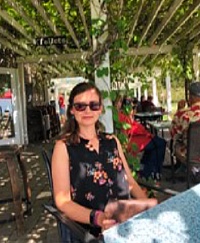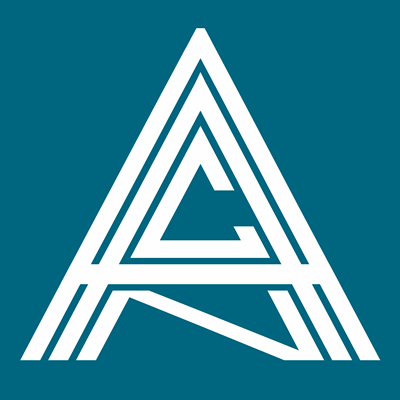
In December 2016 I was finishing my first semester in a PhD music program in Toronto, when I started experiencing strange sensations through the left side of my head: tingling, electrical “zaps” on my face, fluttering in my ear, and what felt like dental pain. I was worried about these symptoms, but I figured I had overdone it with playing my instrument, the saxophone, and assumed I was suffering from a musculoskeletal disorder in my jaw or neck.
Over the next half year, my symptoms progressed and fluctuated, and I saw dentists, doctors, manual therapists, and an ENT who finally discovered that my high-range hearing on the left side was lower than on my right. Again, I thought this was just the wear and tear of being a musician. She said she was being overly cautious but that she would like to send me for an MRI to rule out this rare condition. Fast-forward a number of months, and we arrive at my diagnosis of the “really rare condition” – a 2cm Acoustic Neuroma (AN). Looking back, I see some mild dizziness and balance symptoms that had been present for a long time but that were subtle enough to not alert me to any issues.
The specialists advised me that although I would likely need to have surgery down the road, we would first “watch and wait”, with MRI scans every six months. The waiting period allowed me to gather as much information as I could and to seek multiple opinions. I explored different hospitals, surgical approaches, and doctors in order to make the most informed decisions. I continued on with my life; most people did not know what I was dealing with, but the facial symptoms continually worsened. I learned that the electrical sensations I was experiencing were caused by my tumour pressing on the trigeminal nerve (one of the other cranial nerves), and it gradually progressed to the point where eating and talking would send incredibly intense shooting pain through my face. It became clear from the scans that my tumour was slowly growing (it was about 2.5 cm at the time of surgery), and the surgeons said it was time to take action.
Almost two years after diagnosis I had translab surgery at Sunnybrook Hospital in Toronto. The team was able to remove almost the whole tumour: a few cells were left behind in order to preserve the facial nerve (hopefully these cells won’t show up on an MRI for many years, if ever). The surgeon reported that the facial nerve was extremely thin and if I had waited much longer, they wouldn’t have been able to save the nerve, and that the tumour appeared much larger once they actually got inside my head. Needless to say, hearing this made me very glad that I did not wait longer to do the surgery.
I feel incredibly lucky that my recovery has been straight-forward and positive: I did not have any surgical complications or permanent facial paralysis, I was walking (gingerly) on my own by the end of the first week, and the dizziness and nausea that I experienced immediately following the surgery improved greatly with time, regular walking, and vestibular exercises. I was socializing at restaurants by the end of the first month, did a (slow) yoga class at six weeks, and got back on my bike after two months. I’ll never really know how much of my great outcome can be attributed to luck, the surgical team, or my pre-op health, but I would assume it to be a combination.
My surgeon was honest with me, saying that many people feel frustration after a few months post -op, when they are in most respects “back to normal,” but still don’t feel like themselves and are adjusting to internal sensations. Many refer to this part of recovery as “chasing the final 10 or 15 percent” and that even with a textbook no-complications surgery, it likely takes about a year for the brain to fully heal from the surgery and adapt to the loss of balance and hearing nerve.
I am writing this at four months post-op, thinking a lot about this in-between stage. Patients often don’t get a lot of information from doctors as to what this part of recovery is like, and it can be an isolating and emotional time. The brain is working overtime to adapt, and this often shows up as intense fatigue, brain fog, and the “wonky circus head” phenomenon. Adapting to single-sided deafness post-surgery is often the hardest part to adjust to long-term. I am still getting used to the challenges of filtering sounds and noisy environments, and also coming to terms emotionally with this huge loss, and what it means to me. I have learnt what triggers my fatigue and the circus- head feeling and how to minimize the effects, but also that total avoidance of triggers can make recovery slower.
This stage of recovery can be frustrating because it is invisible to others and can be hard to explain. With such huge leaps and bounds of recovery within the first month, during this middle stage it can feel like progress has stagnated. This is where connecting with others who have gone through the same thing, and understand these challenges, can have a huge positive impact.
Shortly after diagnosis, I connected with another AN-er who lives in the same city as me. We are similarly aged and had the same surgical team with our surgeries two months apart. We have become close friends from this experience, with a level of connection that is only possible when you share a diagnosis and neurosurgeon! Acoustic Neuromas are often referred to as the best type of brain tumour to get, but they pose their own challenges due to the multiple treatment options (yet no “perfect” treatment), hearing loss, and a myriad of possible symptoms.
The emotional toll of living with an AN, and going through the surgery, should not be neglected; recognizing the emotional impact is an important part of the long-term recovery process. For that reason, it is crucial not only to seek out the best neurosurgeons and specialists, but also a varied support system that can help guide you through diagnosis, treatment, and recovery – whatever that may look like for you.

